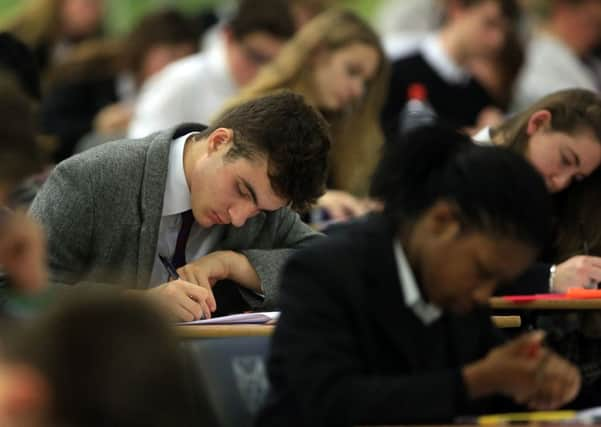Toby Young: Schools must select to lift Britain's technical merit


Today, there is not just a growing consensus that we need to redress the balance, but an increasing demand for high-quality technical/vocational schools.
The growing skills gap in the UK means that by 2022 there are expected to be an additional 3.6 million vacancies in skilled occupations, such as advanced manufacturing.
Advertisement
Hide AdAdvertisement
Hide AdSince 2010, 118 technical/vocational schools have been set up, aimed at 14 to 19-year-olds with a particular aptitude for a range of skilled occupations – 57 University Technical Colleges (UTCs), 55 studio schools and six free schools. Yet, with a few notable exceptions, they have not been successful.


To date, 36 of these schools have either been shut down, converted to other types of school or are earmarked for closure or conversion.
This has caused embarrassment to successive governments, undermined the credibility of the education reform programme that these schools are linked with, and harmed the life chances of the students consigned to them.
Those technical schools that are still open are also facing significant obstacles. For example, pupils at UTCs have lower GCSE scores, make less progress and acquire fewer qualifications than their contemporaries at comprehensives.
Advertisement
Hide AdAdvertisement
Hide AdThere are many difficulties facing technical and vocational schools, but my report, Technically Gifted, argues that their poor performance is largely due to the fact that they cannot select pupils, but must take all-comers – which in practice means that the headteachers of neighbouring comprehensives are using them as ‘‘dumping grounds’’ for their most poorly behaved, low-attaining students.
This puts off pupils who might actually benefit from the specialised education on offer and leaves the schools with many unfilled places.
It also blights the life chances of the hard-to-teach children who end up in them, and those who share their classrooms.
England’s two most successful technical/vocational schools – the BRIT School for Performing Arts and Technology in London and Birmingham Ormiston Academy – are both selective and cater for those aged 14-19.
Advertisement
Hide AdAdvertisement
Hide AdHistorically, some of the most successful technical/vocational schools in Britain in the last 100 years – such as the 15 City Technology Colleges set up in the early 1980s, of which the BRIT School is one – have been selective.
Technical and vocational education in Britain has a long history of failure. Secondary moderns, where councils steered children who failed the 11-plus and where pupils had an opportunity to take qualifications in non-academic subjects, were, with a few exceptions, not particularly successful or popular.
Under the current system, technical/vocational education is still seen as an ‘‘alternative’’ for those who cannot cope with academic subjects or who have a range of difficulties.
This means fewer pupils are willing to move aged 14 – and most of those who do end up in these schools make below average progress.
Advertisement
Hide AdAdvertisement
Hide AdIn the 1990s, reforms to the qualification system to promote technical and vocational education largely failed, and so now the Government is creating T-Levels.
My report argues that, if the Government wants England’s technical/vocational schools to survive and thrive, it must cut the Gordian Knot linking technical and vocational education to a lack of aptitude for academic subjects and allow these schools to select pupils according to aptitude for their particular specialisms at the age of 14.
Not only would this transform the fortunes of these schools, it would also enable the Department for Education (DfE) to set up new 14-19 technical/vocational schools that would be likely to succeed, including replicas of the BRIT School and BOA in other English cities like Manchester and Liverpool.
This would not require any amendment to primary or secondary legislation. A policy change by the Secretary of State for Education would suffice.
Advertisement
Hide AdAdvertisement
Hide AdThis reform would help with Ministers’ stated aim of boosting the status of technical and vocational education by making sure specialist 14-19 schools are not seen as a second-best option.
It would also enhance the Government’s efforts to improve the calibre of technical/vocational qualifications via the introduction of T-levels, ensuring that those who take them (including a 45-day work placement at the end of each course) are not just employment-ready but motivated to seek a career in the relevant industry.
Above all, it would fundamentally improve the life chances, income and well-being of those who have an aptitude for this type of education and would like the opportunity to pursue it, rather than treating them – as we have done for so long – like second-class citizens.
Toby Young is an education campaigner and author of Technically Gifted, a landmark report on vocational education published this month by the Centre for Policy Studies. This is an extract.